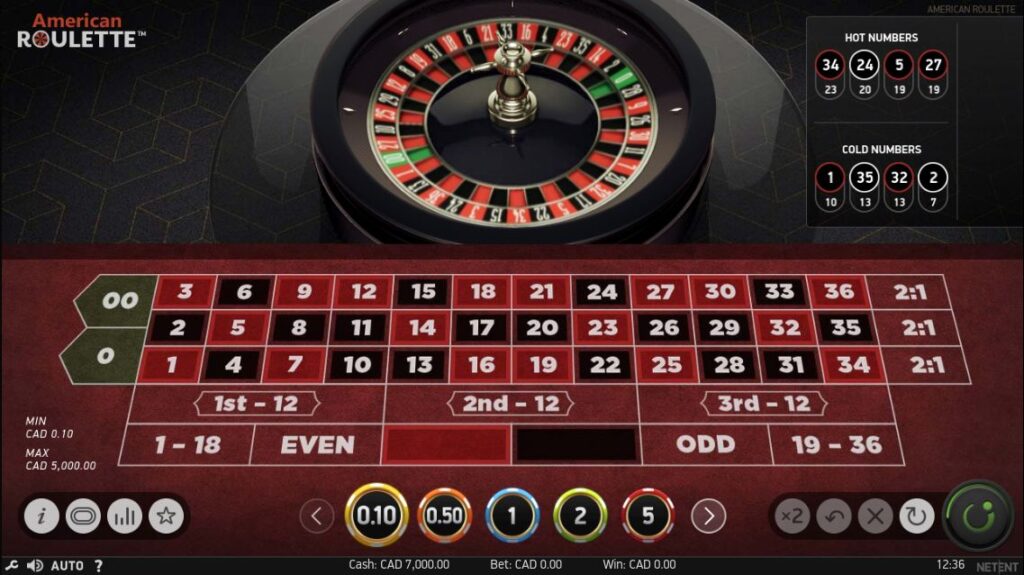Roulette has long been one of the most iconic games in the world of gambling, known for its thrilling wheel spins and anticipation as the ball races around the wheel. Traditionally played in land-based casinos, roulette has made a seamless transition into the digital world of online casinos. But how did roulette evolve from its classic, brick-and-mortar origins to the dynamic online versions we know today? In this post, we’ll explore the history of roulette, its transition to online platforms, the different types of online roulette, how the virtual roulette wheel works, and strategies for increasing your chances of winning.
The History of Roulette and Its Transition to Online Platforms
The game of roulette traces its roots back to 18th-century France. The name “roulette” itself comes from the French word for “little wheel.” The game was created by mathematician Blaise Pascal in the 1650s as part of his experiment to create a perpetual motion machine. It was later adapted and popularized as a gambling game in Parisian casinos around 1796. Early versions of roulette used a wheel with 36 numbered pockets, a red or black color for each number, and a green pocket for 0 (and later, a 00 in American roulette).
Roulette quickly became a staple of European casinos and spread to the United States, where the addition of a double-zero (00) pocket created the American version of the game.
The transition to online roulette began in the late 1990s with the rise of online casinos. Initially, online roulette was a simple, computerized version of the traditional game. The early digital roulette games used basic graphics and animations to simulate the wheel and betting options. However, as internet technology advanced, so did the design and functionality of online roulette games. Today, players can enjoy high-quality virtual roulette tables with realistic animations, interactive gameplay, and even live dealer versions that replicate the experience of playing in a brick-and-mortar casino.
Different Types of Online Roulette
As online casinos have evolved, so too has the variety of roulette games available. Here are the main types of online roulette you can find:
- European Roulette:
- European roulette is the most common and widely played version of the game, especially in online casinos. It features a wheel with 37 pockets (numbers 1 to 36, plus a single zero). The presence of only one zero gives European roulette a lower house edge compared to its American counterpart—2.7%.
- This version is favored by many players because it offers the best odds and is the standard for most online casinos.
- American Roulette:
- American roulette differs from European roulette in that it features an extra pocket: a double-zero (00) in addition to the single zero (0). This results in a total of 38 pockets on the wheel.
- The extra 00 increases the house edge to 5.26%, making it less favorable for players compared to European roulette. However, it’s still a popular option in both land-based and online casinos, especially in North America.
- French Roulette:
- French roulette is similar to European roulette but includes a special rule known as the La Partage rule. This rule states that if the ball lands on zero, players who placed even-money bets (such as red/black, odd/even, etc.) receive half of their bet back.
- This rule reduces the house edge even further to 1.35%, making French roulette the most advantageous version for players.
- French roulette also features a unique layout for the betting table, with French terminology used for various bets.
- Live Dealer Roulette:
- One of the most exciting innovations in online roulette is live dealer roulette. These games are streamed in real-time from professional studios or actual casino floors, allowing players to experience the thrill of playing with a live dealer from the comfort of their own homes.
- Live dealer roulette is typically offered in all three main variations—European, American, and French—and provides an immersive, authentic casino experience, complete with real-time betting, interaction with the dealer, and fellow players.
- Mini Roulette:
- Mini roulette is a simplified version of the game with fewer pockets on the wheel—usually 13 in total, including numbers 1 through 12 and a single zero. The odds are slightly different, and while the game is quicker and more straightforward, it has a higher house edge, so it’s more of a novelty offering.

How the Roulette Wheel Works Online
In traditional roulette, a physical wheel is spun by the dealer, and the ball is released onto the wheel to determine the winning number. Online roulette replicates this process through the use of Random Number Generators (RNGs) for virtual games and live streaming technology for live dealer roulette.
- RNG Roulette: In RNG-based online roulette, the software simulates the spinning of the wheel using a complex algorithm. Every time you place a bet and spin the wheel, the RNG ensures that the outcome is completely random and fair. The RNG mimics the randomness of the ball bouncing off the pockets on a real roulette wheel, giving players a chance at winning based purely on luck.
- Live Dealer Roulette: In live roulette, a physical wheel is used, and the result is determined in real time, just like it would be in a land-based casino. The dealer spins the wheel, and the ball is dropped onto the wheel live via video streaming. Players place their bets and watch the action unfold from their screens, interacting with the dealer via chat features.
Strategies for Winning at Online Roulette
While roulette is a game of chance, players often look for strategies to improve their chances or help manage their bets. Although no strategy guarantees a win (since the game relies on luck), here are a few tips to enhance your approach:
- The Martingale System:
- The Martingale strategy is one of the most well-known betting systems used in roulette. It’s a progressive betting system that involves doubling your bet after each loss. The idea is that after a loss, you increase your wager to recover your previous losses with one win.
- While this system can be effective in theory, it requires a substantial bankroll and carries the risk of reaching table limits if you experience a losing streak.
- The Reverse Martingale (Paroli):
- The Reverse Martingale, or Paroli, is the opposite of the traditional Martingale strategy. Instead of increasing your bet after a loss, you increase it after a win. This method allows you to ride winning streaks and minimize losses during bad runs.
- The D’Alembert System:
- This strategy is a more conservative approach to progressive betting. With the D’Alembert system, you increase your bet by one unit after a loss and decrease it by one unit after a win. It’s less aggressive than the Martingale system and is often favored by players who prefer a slower, more measured approach.
- Flat Betting:
- Flat betting is the most straightforward strategy where you bet the same amount on each spin, regardless of whether you win or lose. This method is low-risk and ensures that you don’t get caught up in a losing streak. It’s ideal for players who want to enjoy the game without risking too much.
- Focus on Outside Bets:
- Outside bets (such as red/black, odd/even, or high/low) have higher odds of winning because they cover a larger portion of the wheel. While the payouts are smaller, the chances of winning are greater, making them ideal for players who want to play it safe.
Conclusion
Roulette has come a long way from its humble beginnings in 18th-century France to becoming one of the most beloved games in both land-based and online casinos. The advent of online platforms has expanded the game’s reach, offering players a variety of roulette types, including European, American, and French versions, as well as live dealer options for an immersive experience.
While online roulette remains a game of luck, understanding the different variations and using a sound betting strategy can help improve your experience and make the game more enjoyable. Whether you’re playing for fun or trying your hand at winning, remember that roulette should always be played responsibly. Keep your bets within your limits, and most importantly—have fun spinning that wheel!
